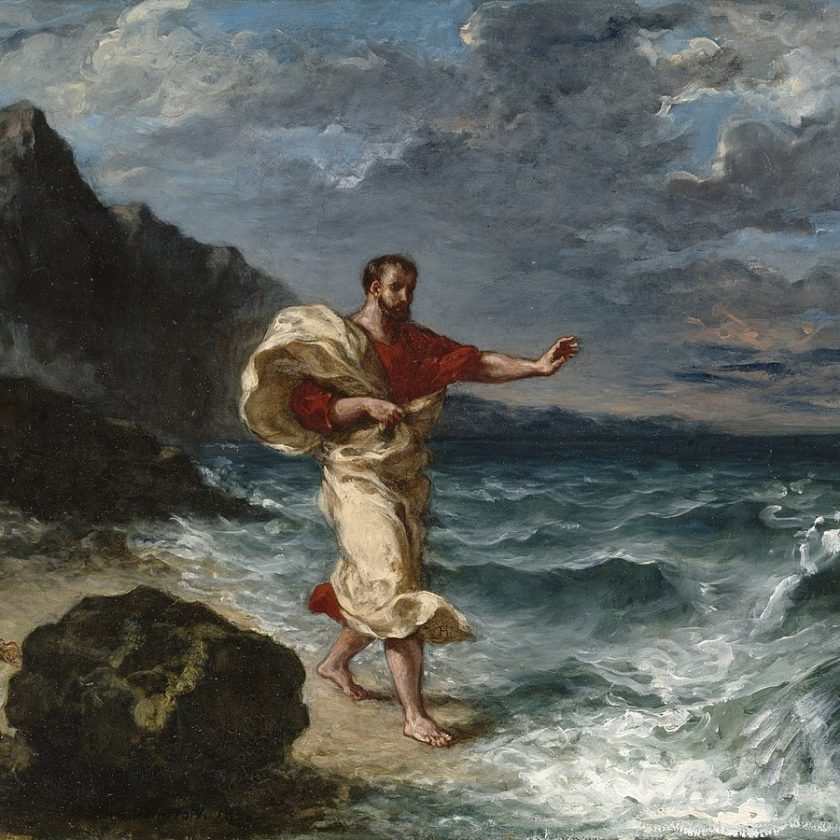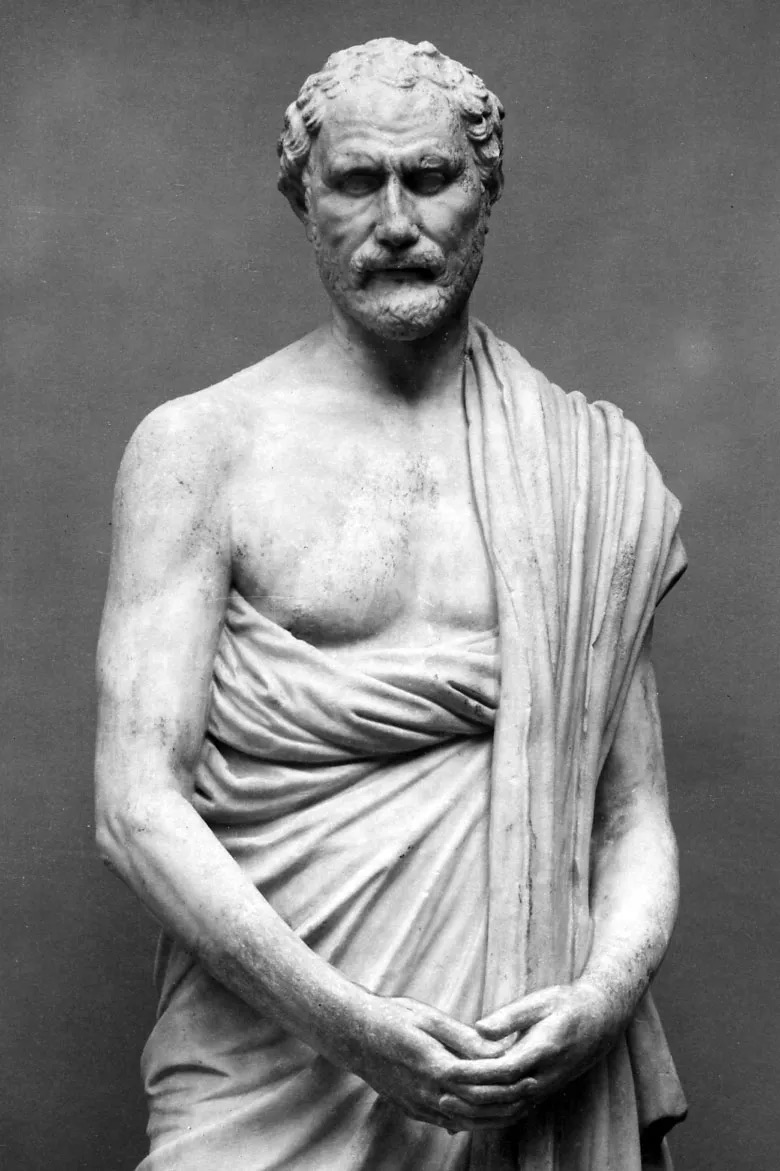On the Chersonese
Demosthenes (Δημοσθένης)
Historical Context
By 341 BC, Athens faced its greatest foreign policy crisis in generations. Philip II of Macedon had spent over a decade systematically expanding his power, conquering Greek cities and building the strongest military force in the Mediterranean world. The Chersonese peninsula, modern day Gallipoli, was vital to Athens for both strategic and economic reasons. This narrow peninsula controlled access to the Black Sea, through which much of Athens' grain supply passed. Athenian settlers had lived there for generations, and the city maintained a military presence under the general Diopithes. But Philip's armies were now operating in nearby Thrace, and remained ominously unclear.
In the Athenian Assembly, a heated debate had erupted. Some speakers argued that Diopithes was acting too aggressively, potentially provoking unnecessary conflict with Macedon. Others wanted to recall him entirely. A few suggested that Athens should accommodate Philip's expansion rather than risk war.
Demosthenes rose to speak against this dangerous complacency. At 43, he had already established himself as Athens' most formidable orator and Philip's most persistent critic. This speech would become one of his most important interventions, combining detailed policy analysis with warnings about the nature of the Macedonian threat.

The Speech
Key Quotes
"The really serious problem is the state of the Chersonese and Philip's Thracian campaign, now in its eleventh month; yet most of the speeches have been confined to what Diopithes is doing or what he is going to do."
Demosthenes reframes the debate to focus on the real threat from Philip rather than criticism of Athens' own general
"What then is that task? To defend ourselves against the aggressor."
Defining the core duty of Athens in the face of Macedonian expansion
"Therefore you must needs bear in mind that this is a life-and-death struggle."
Demosthenes' stark assessment of the existential nature of the conflict with Macedon
"For no man is so simple as to believe that though Philip covets these wretched objects in Thrace... he does not covet the Athenian harbors and dockyards and war-galleys and silver mines."
Exposing the logical inconsistency of those who think Philip will stop before attacking Athens itself
"I see not that any words, divorced from the necessary action on your part, can ever save the State."
His powerful conclusion calling for action rather than mere deliberation
Analysis & Rhetorical Strategy
"On the Chersonese" combines logical arguments with emotional appeal in a masterful display of deliberative oratory. Demosthenes opens with a calculated appeal to unity, calling for speakers to set aside personal animosity and focus on the public good. This establishes hime as reasonable statesman while subtly criticizing his opponents as partisan. He then employs a classic rhetorical strategy: reframing the debate. Instead of arguing about whether Diopithes should be recalled, he refocuses attention on the real threat: Philip's systematic expansion.
His argument structure follows careful logical progression. First, he demonstrates that Philip has broken the peace through his actions in Thrace and elsewhere. Second, he exposes the inconsistency of critics who would restrain Athens while allowing Philip free rein. Third, he uses historical examples to show Philip's pattern of deception and conquest. Finally, he issues urgent warnings about the consequences of continued inaction.
The speech's emotional power comes from Demosthenes' vivid imagery and direct appeals to Athenian pride. His famous declaration that "this is a life-and-death struggle" transforms policy debate into existential crisis. He skillfully contrasts Philip's decisive action with Athenian hesitation, using shame as motivation for reform.
Throughout, Demosthenes displays his mastery of classical rhetorical techniques: antithesis, rhetorical questions, and carefully constructed periods that build to powerful climaxes. His language is precise yet passionate, combining technical policy analysis with calls to action.
Historical Impact
Demosthenes' warnings about Philip's intentions were vindicated when Macedonian forces continued their expansion, eventually leading to the decisive Battle of Chaeronea in 338 BC where Philip crushed the combined forces of Athens and Thebes. The speech's immediate impact was that it helped convince the Assembly to maintain support for Diopithes and resist calls for appeasement. More broadly, it established the rhetorical framework that would define Athenian resistance to Macedon for the remainder of Philip's reign.
Beyond its historical importance, the speech became a model for political oratory. Its careful balance of logical argument and emotional appeal, its sophisticated reframing of complex issues, and its urgent call to action have influenced speakers for over two millennia. During the Renaissance, humanist scholars studied Demosthenes' techniques as examples of effective deliberative rhetoric.
The speech remains relevant to modern discussions of foreign policy and democratic decision-making. Demosthenes' analysis of how authoritarian powers exploit democratic debate and his warnings about the costs of delayed action continue to resonate with contemporary audiences.

About the Speaker
Demosthenes (384-322 BC) was ancient Athens' greatest orator and one of history's most influential public speakers. Born into a wealthy family, he overcame a speech impediment in his youth to become the dominant voice in Athenian politics during the city's final struggle for independence.
Known for his meticulous preparation and passionate delivery, Demosthenes excelled in the art of deliberative oratory, which are speeches designed to persuade the Assembly on matters of public policy. His Philippics, a series of speeches warning against the threat posed by Philip II of Macedon, established his reputation as a master of political rhetoric and strategic analysis.
When he delivered "On the Chersonese," Demosthenes was at the height of his powers, combining detailed knowledge of military affairs with an unmatched ability to move his audience to action.
View all speeches by Demosthenes